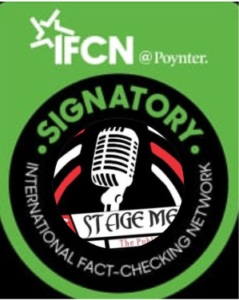-War Crimes Court Advocate Beaten by Unknown Men
“I have been championing the cause for the establishment of war and economic crimes court. There is a need for people who committed atrocities to pay for what they did. Been a victim myself, we cannot ignore the importance of the establishment of the court.”
By: Trokon Wrepue – [email protected]
A 27-year-old male student of the University of Liberia reading Political Science with an emphasis in Mass Communication was reportedly beaten by a group of unknown men for advocating for the establishment of a war and economic crimes court in Liberia.
Mr. Lewis Merchant told “The Stage Media” on Friday morning that the unknown men overpowered him between 4 to 4:30 PM on the UL entrance directly adjacent the Stella Maris University, Capitol Hill.
Merchant said before the incident took place Thursday, he had earlier engaged a group of students on the UL capitol hill campus to rally support for the establishment of war and economic crimes court.
“I went to the school’s campus on Thursday at about 3 pm and while I was there, I began to enlighten many of the students under the ‘Palava Hut’ on the importance of the establishment of the court.”
“At that time, my phone was on charge in one of the generator rooms and on my way for my phone I saw nearly fifteen men and one of them pointed to me saying- he one of those-.”
“These unknown men flogged (sic) me. Two men held me to the ground while the other began to severely beat me with sticks and other weapons.

Merchant says he cannot remember any of them, but he got sprayed before he was beaten.
“When they approached me, one of them sprayed my eyes. At that moment I could no longer see.”
“After spraying me, I decided to resist. But one of them beat my left hand with a stick. You see how this hand looks like. I am feeling severe pain.”
Merchant who is also a student of UL said before his discussion at the UL Campus, he made a social media post, “We will join Senator Dillon to ensure the court is established in Liberia.”
According to him, the attack has been consistent, “I have been attacked by students on Fendell Campus, I can say this is not my first attack, the previous attack, I made my way through the swamp on Fendell Campus.”
But on Capitol Hill’s campus Merchant was rescued by a security officer of the school, “Before the security could rescue me, I was beaten mercilessly, but I am grateful that he came to my rescue.”
Merchant is one of those who are trumpeting the call of the establishment of war and economic crimes court.
“There is a need for people who committed atrocities to pay for what they did. Been a victim myself, we cannot no ignore the importance of the establishment of the court.”
Like many other victims of the Liberian civil war, Merchant at an early age remembered his family fled to the Ivory Coast as refugees.
He says his family witnessed the burial of his grandmother alive.
“I was born 1994 during the height of the war; my early childhood was in Ivory Coast living as a refugee, I vividly remember how my grandmother was buried alive by LPC. Why do they want us to keep silent? Enough is enough.”
Liberia National Police
Merchant has not reported the case to the Police on grounds of “lack of confidence”.
incidence of the Liberia National Police but said he has absolutely no trust in the LNP.
“I have not gone to the police. I don’t intend to go there. I don’t trust them because there are several criminal cases before them like mine and are unable to settle or properly investigate those cases. What will they do in my case? I am feeling so much pain. The guys beat me for thirty good minutes.”
When contacted, Moses Carter, Spokesperson, LNP said “I just arrived in Monrovia from Grand Gedeh County, so I can’t tell you if he was flogged or not, but I will check with my team and get back to you.”
The armed conflicts from 1989-96 and 1999-2003 led to the widespread violations of international human rights and humanitarian law such as mass killings, rape and other forms of sexual violence, summary executions, mutilation, and torture, and use of child combatants in Liberia.
Following the decades-long civil war, the country moved swiftly to establish the Truth and Reconciliation Commission.
The TRC was established to “promote national peace, security, unity and reconciliation,” and at the same time make it possible to hold perpetrators accountable for gross human rights violations and violations of international humanitarian law that occurred in Liberia between January 1979 and October 2003.
Since the war ended, many justice and civil society group including a good portion of the Liberian media has pressed upon past and succeeding governments to establish the court, but the calls have fallen on deaf ears.
This story is developing………………….







